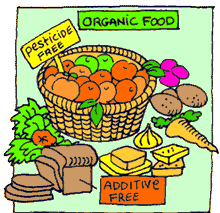A new peer-reviewed study shows that eating a completely organic diet—even for just one week—can dramatically reduce the presence of pesticide levels in people, a finding that was characterized as “groundbreaking” by critics of an industrial food system that relies heavily on synthetic toxins and chemicals to grow crops and raise livestock. Published in the Environmental Research, the study—titled Organic Diet Intervention Significantly Reduces Urinary Pesticide Levels in U.S. Children and Adults —found that switching to an organic diet significantly reduced the levels of synthetic pesticides found in all participants.
Among the key findings:
- 61% drop in chlorpyrifos, a neurotoxic pesticide known to damage children’s developing brains. Exposure is associated with increased risk of autism, learning disabilities, ADHD, and IQ loss.
95% drop in malathion, another neurotoxic organophosphate pesticide and a probable human carcinogen according to the World Health Organization.
- 83% drop in clothianidin, a neonicotinoid pesticide. Neonicotinoids are associated with endocrine disruption and changes in behavior and attention, including an association with autism spectrum disorder. Neonicotinoids are also a main driver of massive pollinator and insect losses, leading scientist to warn of a “second silent spring.”
- 43-57% drop in pyrethroids, a class of pesticides associated with endocrine disruption and adverse neurodevelopmental, immunological and reproductive effects.
- 37% drop in 2,4-D, one of two ingredients in Agent Orange. 2,4-D is among the top five most commonly used pesticides in the U.S. and is associated with endocrine disruption, thyroid disorders, increased risk of Parkinson’s and non-Hodgkin’s lymphoma, developmental and reproductive toxicity and other health issues.
Source: WallStreetWindow.com, 14 Feb 2019
https://wallstreetwindow.com/2019/02/study-shows-toxic-pesticide-levels…
Link naar rapport:
http://foe.org/wp-content/uploads/2019/01/OrganicForAll_report_Final.pdf

- Login om te reageren
